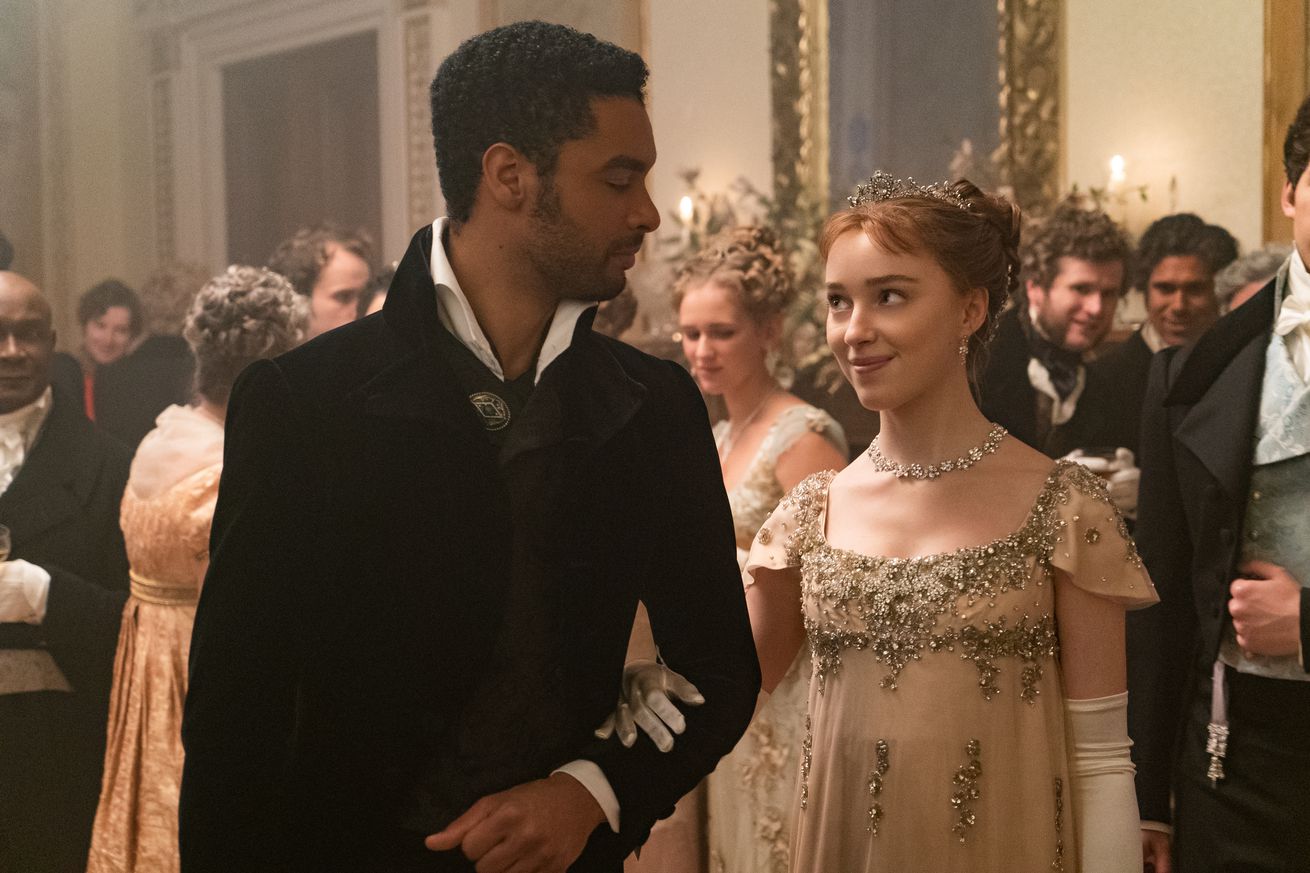
Netflix is suing Abigail Barlow and Emily Bear, the duo behind The Unofficial Bridgerton Musical over copyright infringement, as first reported by Deadline. The streaming giant filed the complaint in a Washington, DC district court just days after Barlow and Bear held a live, sold-out show dedicated to their Bridgerton-inspired album.
After Bridgerton’s 2020 debut, Barlow and Bear began creating music based on the Netflix original series and promoting the endeavor on TikTok, where it quickly gained popularity. As fans requested more content, Barlow and Bear soon had enough to create a 15-song album that went on to win a Grammy in April, a first for music originating on TikTok. On July 26th, Barlow and Bear held a concert at the Kennedy Center in Washington, DC, featuring live performances and music from the National Symphony Orchestra.
Absolutely blown away by the Bridgerton musical playing out on TikTok
— Netflix (@netflix) January 13, 2021
Standing ovation for @abigailbarloww & @nick_t_daly pic.twitter.com/hoHsDtNyAE
In its complaint obtained by Deadline, Netflix alleges that Barlow and Bear’s content “stretches ‘fan fiction’ well past its breaking point” and that it’s a “blatant infringement of intellectual property rights.” Despite praising Barlow and Bear’s work itself, Netflix claims it repeatedly told the pair that Bridgerton-inspired compositions “were not authorized.”
Netflix alleges that the live Unofficial Bridgerton performance also wasn’t approved by the company, and that Barlow and Bear “refused” to negotiate a license that would allow them to distribute their album and hold live performances without issue.
“Barlow & Bear lacked any license, approval, or authorization to exploit Bridgerton intellectual property in connection with the Kennedy Center performance,” Netflix states. “And to the extent Barlow & Bear ever claimed to believe they had such license, approval, or authorization — despite Netflix’s clear statements to the contrary — it has now been unequivocally revoked.”
Netflix goes on to claim that Barlow and Bear explicitly used the Bridgerton brand during its show, and “attracted Bridgerton fans who would have otherwise attended the Bridgerton Experience,” Netflix’s own Bridgerton-themed event that it holds in six separate cities throughout the year. Barlow and Bear currently have plans to perform alongside the BBC Orchestra at the UK’s Royal Albert Hall this September.
“Netflix supports fan-generated content, but Barlow & Bear have taken this many steps further, seeking to create multiple revenue streams for themselves without formal permission to utilize the Bridgerton IP [intellectual property],” Netflix said in a statement. “We’ve tried hard to work with Barlow & Bear, and they have refused to cooperate. The creators, cast, writers and crew have poured their hearts and souls into Bridgerton, and we’re taking action to protect their rights.”
Julia Quinn, the author behind the Bridgerton book series says she was “flattered and delighted” when Barlow and Bear started creating TikToks based on the concept at first. “There is a difference, however, between composing on TikTok and recording and performing for commercial gain,” Quinn says. “I hope that Barlow & Bear, who share my position as independent creative professionals, understand the need to protect other professionals’ intellectual property, including the characters and stories I created in the Bridgerton novels over twenty years ago.”
Shonda Rhimes, the producer of the Bridgerton Netflix series issued a separate statement. “What started as a fun celebration by Barlow & Bear on social media has turned into the blatant taking of intellectual property solely for Barlow & Bear’s financial benefit,” Rhimes adds. “Just as Barlow & Bear would not allow others to appropriate their IP for profit, Netflix cannot stand by and allow Barlow & Bear to do the same with Bridgerton.”
Barlow and Bear didn’t immediately respond to The Verge’s request for comment.
Source: The Verge